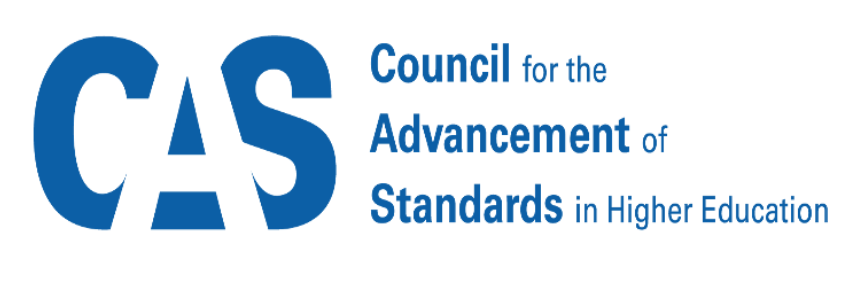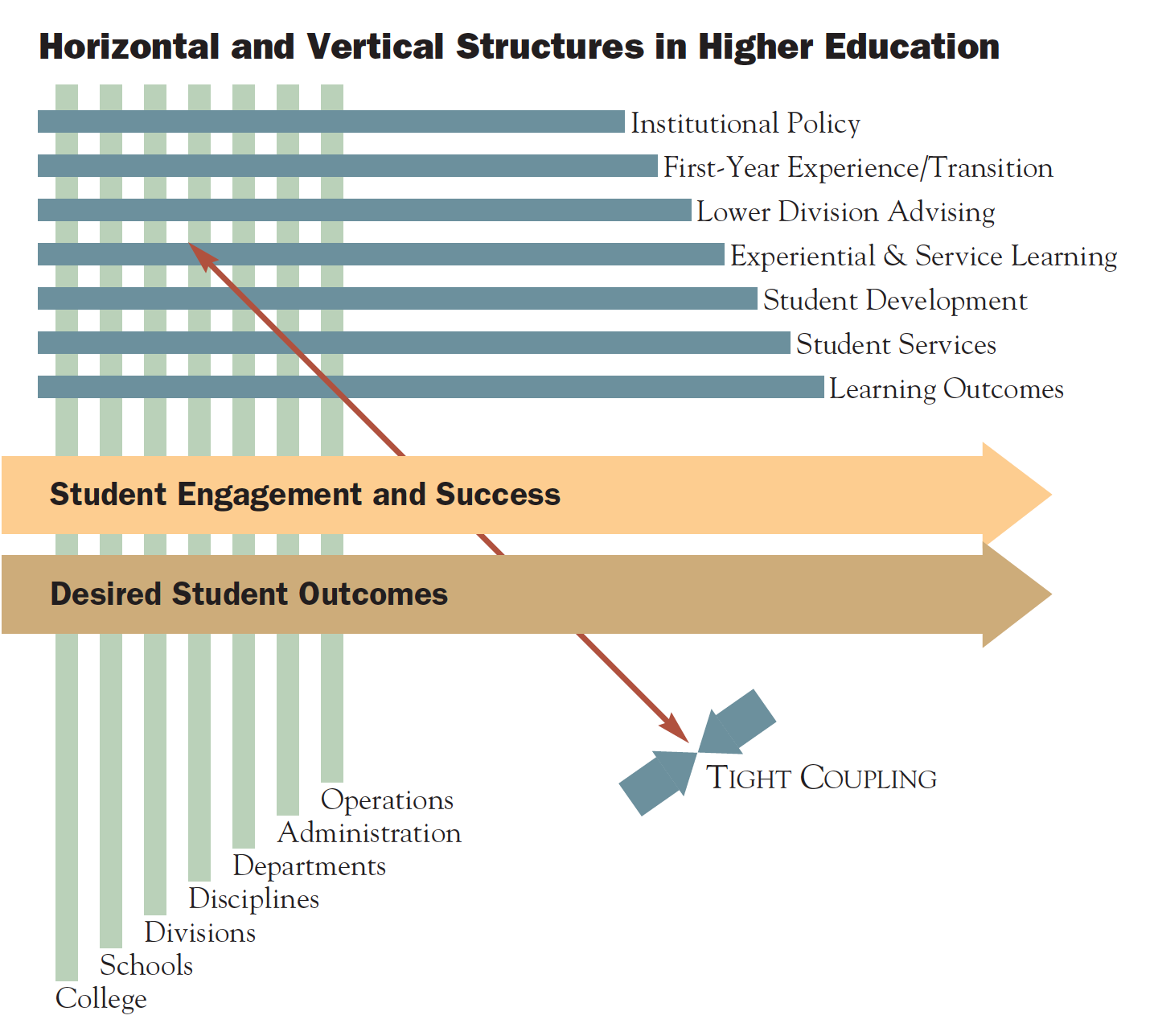As a leader of institutional effectiveness in your institution, what do you consider your overarching mission?
Your top goal should be a determination to create a culture of assessment. This is not one ignited only by an upcoming accreditation, but an ongoing system of measuring standards and guidelines across every service and program.
The Council for the Advancement of Standards in Higher Education (CAS) has promoted standards in student affairs, student services, and student development programs for over 20 years.
 Its framework ensures ongoing strategic planning, program review and critical self-reflection not just at the time of accreditation, but year-round.
Its framework ensures ongoing strategic planning, program review and critical self-reflection not just at the time of accreditation, but year-round.
CAS helps you create a culture of assessment while preparing you for regional accreditation. Your institution can leverage CAS to ensure an excellent review by using its program to focus on mission fulfillment, collect constructive data, and enact quality action plans for improvement.
CAS provides a number of tools for self-assessment of non-academic units including functional area standards, cross-functional frameworks, and a guided self-study process. While many offices use the CAS materials for internal program review, few consider how CAS can be used to support regional accreditation efforts.
What You Can Expect From the Accreditation Process
Accreditors have high expectations. Their review seeks out evidence of measurable outcomes, ongoing assessment of outcomes and the use of the outcomes to ensure quality programs and services.
CAS’s primary focus is on an institution knowing and maintaining its acceptable standards and guidelines for improvement. This is not to be confused with best practices as the CAS resource exists to serve institutions of any size, quality or location. Many institutions work to simply meet the standards, while others, after achieving the standards, focus their efforts on the specific guidelines. At its core, CAS points the institution’s attention toward fulfilling its mission. Regardless of department, field, curricular or co-curricular programs and services, CAS upholds professional standards and seeks a cohesive system for the field of student services and affairs.
By following standards and guidelines, your data will supply evidence of effort, intention and success within your institution to fulfill your mission—as well as areas that need corrective action.
Focus, Collect and Produce Quality Data for Accreditation
CAS’s vertical and horizontal alignment grid from Keeling, Underhile, & Wall (2007) offers a practical way to look across an institution and see how the institutional efforts align regardless of the division. The vertical reflects the departments of the institution while the horizontal indicates the student affairs.

“By demonstrating our horizontal structure we paint a picture for our accrediting agencies of our organizations and institutions that not only works across college school departmental and divisional boundaries, but one where professionals use a common language for a broader shared goal of student learning and success.”
Tips To Leverage CAS for Regional Accreditation
- Gather evidence. By implementing the CAS standards and guidelines, your departments will begin the process of gathering important data that supports your quality of systems and programs.
- Review cycle systematically and often. The step-by-step self-study process should be an ongoing review. Your ability to do so will create up-to-date data that addresses the specific areas of your institution and its goals.
- Create a culture of assessment. CAS self-assessment guides and templates simplify the process across your entire institution. Whether departments work together or independently, the CAS resources unify the efforts of every team, creating a culture of assessment where everyone benefits.
By implementing an ongoing process of data collection, examination and action plans your institution is strategically positioned for a successful accreditation review at any time.
***
For more detailed information on this topic, watch the Leveraging CAS as an Opportunity for Regional Accreditation webinar recording.
To see more accredidation resources, visit our accreditation knowledge center here.
***
Gavin Henning, Ph.D.
Professor and Program Director of Higher Education Programs, New England College
Dr. Gavin Henning is Professor of Higher Education at New England College in New Hampshire where he directs the Master of Science in Higher Education Administration and Doctorate of Education programs. Gavin is past president of the Council for the Advancement of Standards in Higher Education (CAS) and is a past president of ACPA – College Student Educators International. He has published articles and books on assessment including Student Affairs Assessment: Theory and Practice with Darby Roberts that serves as the foundational text for assessment courses in many higher education graduate programs. Gavin earned his Ph.D. in Leadership and Policy Studies from the University of New Hampshire.
Matthew Pistilli, Ph.D.
Director of Student Affairs Assessment and Research, Iowa State University
Dr. Matthew Pistilli is the Director of Student Affairs Assessment and Research in the Division of Student Affairs at Iowa State University. For over 20 years, Matt has focused on creating and assessing conditions and environments that positively affect college student success. His current and previous roles have also focused on creating, revising, and assessing divisional- and university-wide strategic plans. He facilitates trainings on learning analytics, assessment and evaluation, mission and vision building, and strategic planning. He is widely published on learning analytics and student success efforts, and has served on the editorial teams for the International Journal of Learning Analytics and the Journal of The First-Year Experience and Students in Transition.
Vicki L. Wise, Ph.D.
Director of Assessment and Accreditation in the College of Public Health and Human Sciences, Oregon State University
Dr. Vicki L. Wise is the Director of Assessment and Accreditation in the College of Public Health and Human Sciences at Oregon State University. In her previous role as Associate Director for Teaching, Learning, and Assessment, she was instrumental in leading Portland State University (PSU) into a new era of quality assessment practice and accountability by integrating assessment processes across levels from the course to the program to the institution.
Previously, at PSU, she served as Director of Student Affairs Assessment & Research. Prior to PSU, she held the positions of Director of Assessment and Evaluation for the College of Education, Assistant Director for Institutional Research, and Assistant Professor/Research Administrator in the Center for Assessment and Research Studies, all at James Madison University. She earned her Ph.D. and M.A. degrees at the University of Nebraska in Psychological and Cultural Studies and Educational Psychology, respectively. Her research interests, publications, and presentations are in the area of applied assessment practice in higher education. She was the editor on her most recent publication: Wise, V.L., & Davenport, Z. & (2019). Student affairs assessment, evaluation, and research: A guidebook for graduate students and new professionals. Springfield, IL: Charles Thomas Publisher.
Want to see how Weave can help you simplify your accreditation processes?
Fill out the form below for a personalized demo. You’ll receive advice on your current accreditation system, as well as an overview of how Weave can simplify your workflows, improve collaboration and make your assessment and accreditation process a success.



